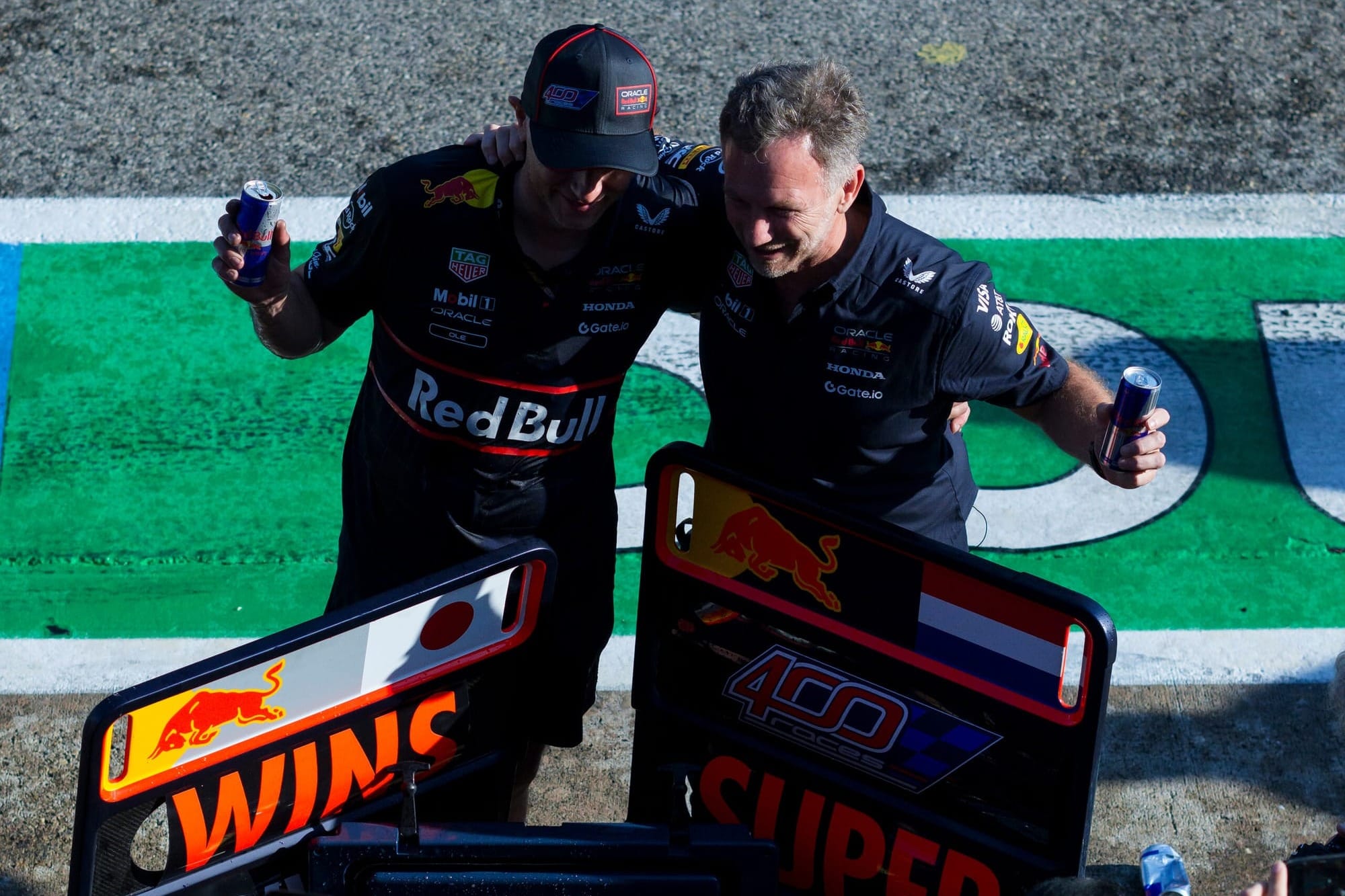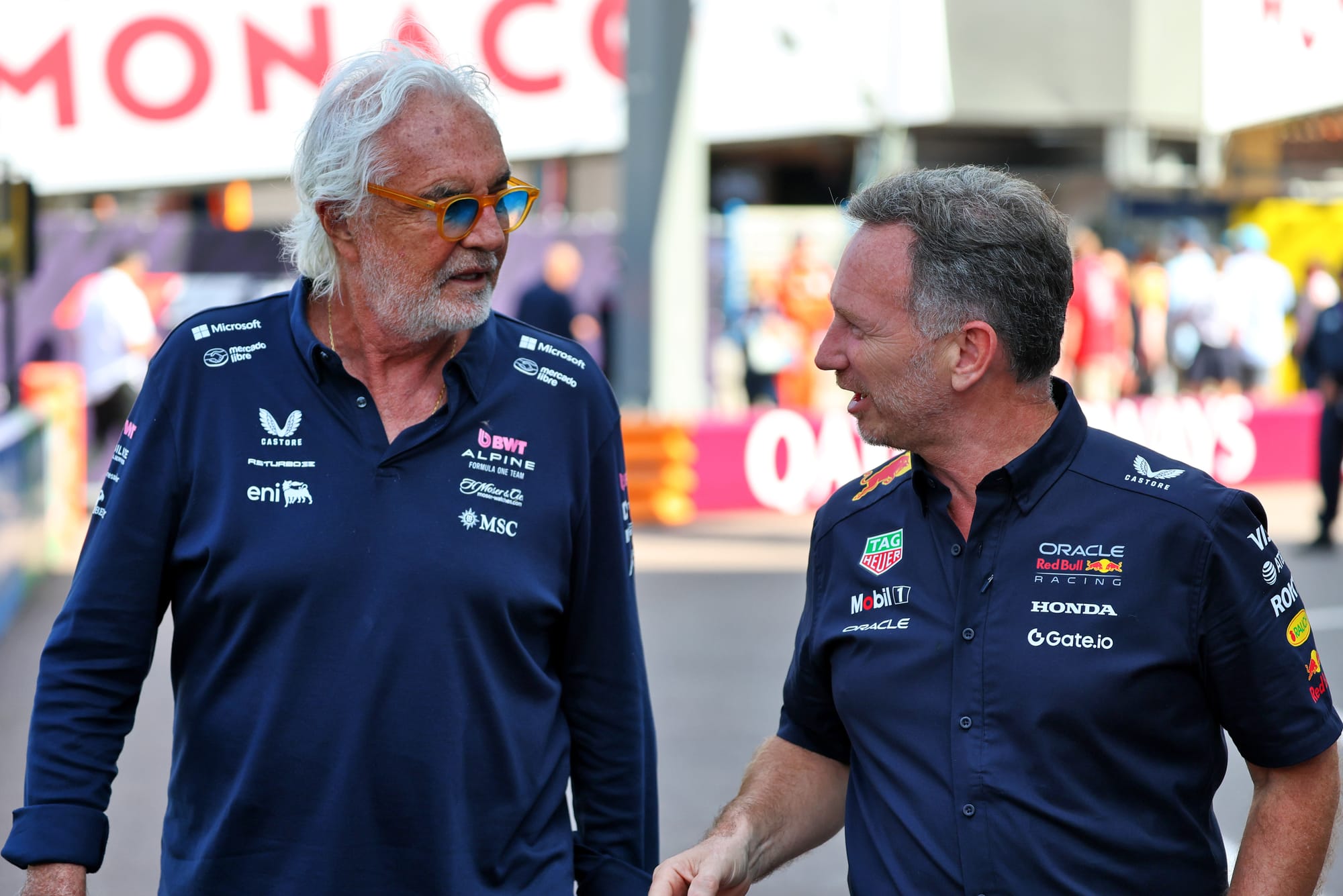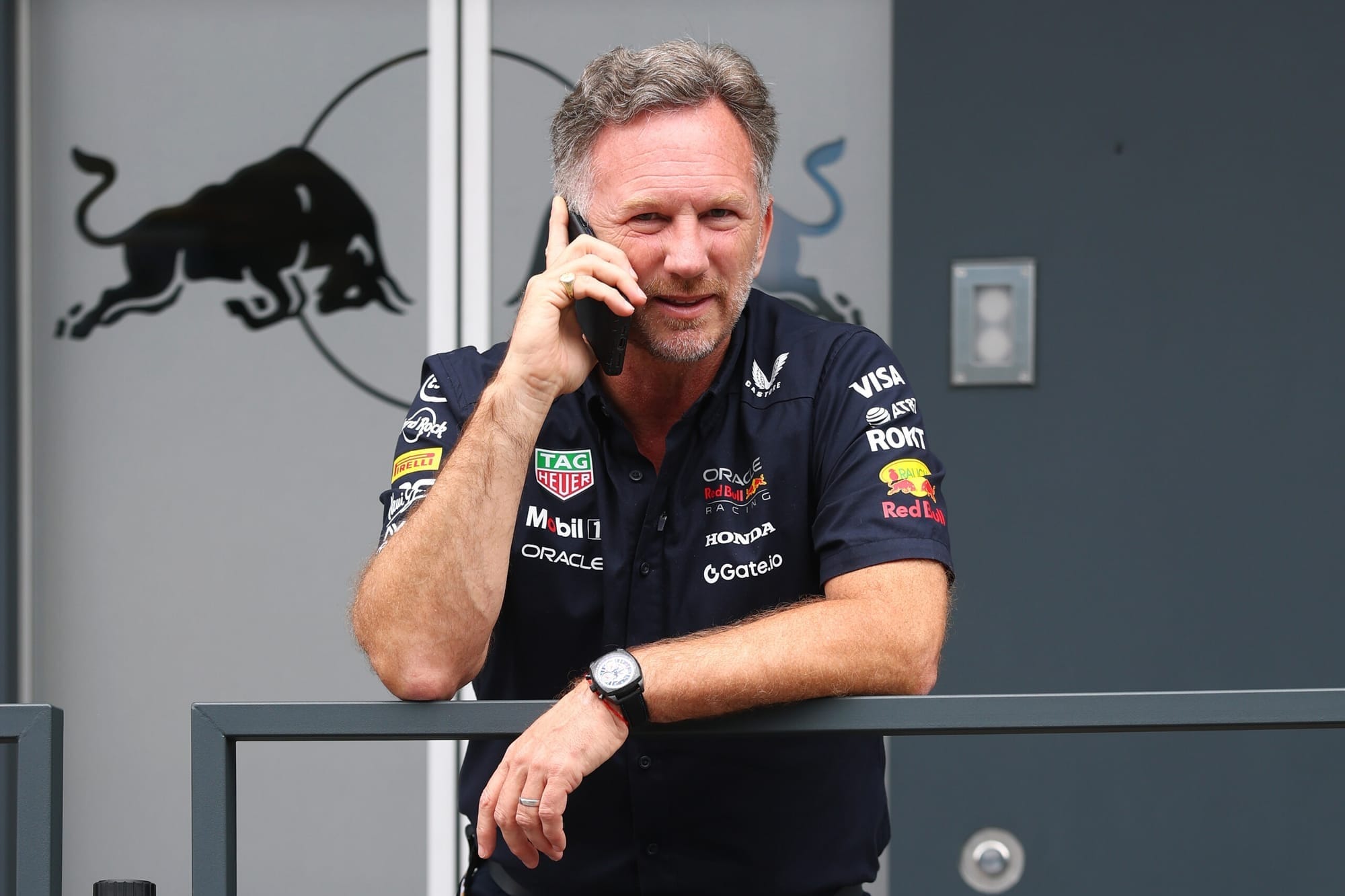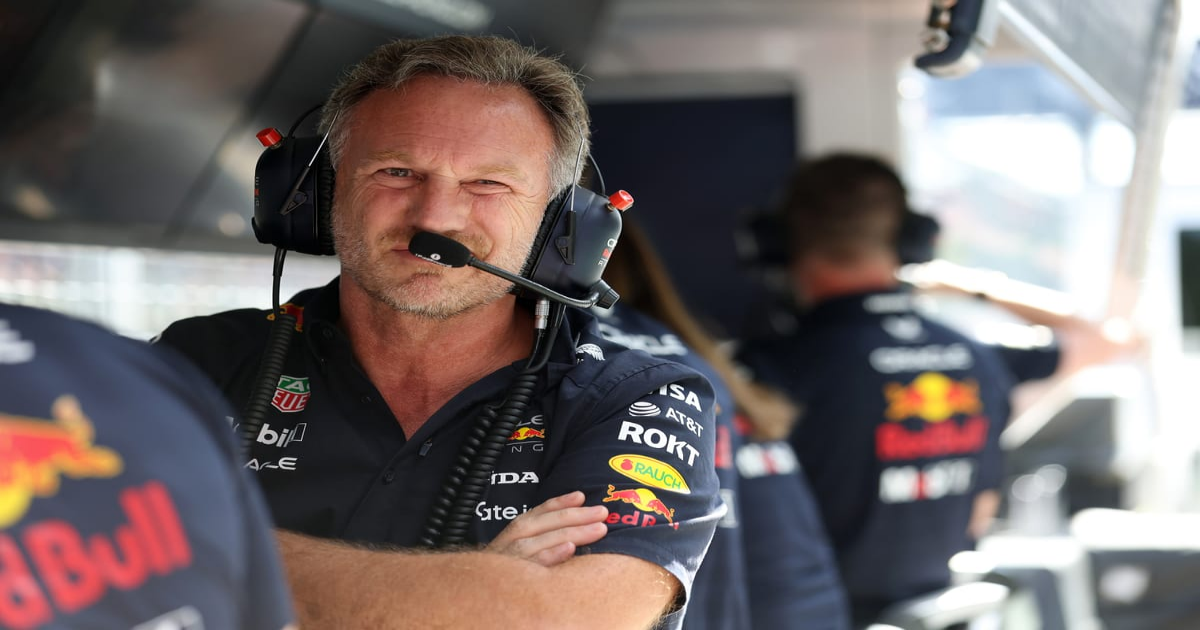Christian Horner is still under contract with Red Bull despite being relieved of his responsibilities at its Formula 1 team – for now.
After his removal from being in charge of the Milton Keynes-based F1 empire he built, a complete split is only a matter of time. And that will release Horner to finally move elsewhere should he wish to find another F1 project to take on that gives him the complete control he feels he needs.
Horner has considered his options before. He rejected an offer from Ferrari to lead its F1 team at least once due to his desire to stay with Red Bull. But having suddenly been relieved of his responsibilities this week, the prospect of him turning up somewhere else is now much greater.
The Race understands that Horner is in no rush to find another position in F1, and is content with spending some time at home after a turbulent 18 months or so on a personal level, not just professionally with different degrees of in-fighting at Red Bull.
But as the most experienced and successful team boss of the modern era, Horner will quickly become an option for most teams on the grid who consider a change of leadership.

Ferrari is understood to have had no contact with Horner and no intention to recruit him, but it was keen before and current team principal Fred Vasseur is out of contract at the end of the year. Vasseur has also come under increasing pressure from major Italian publications – something Horner was only recently asked about at last week’s British Grand Prix.
“In any organisation, stability is tremendously important,” he said. “We’ve had 21 years of stability and that has borne the kind of results that we’ve achieved.
“Fred is a very capable manager. He’s obviously managing what effectively is a national team in Ferrari, and with that comes expectation and pressure. He’s still relatively new to the role, and it takes time to put the right processes in place, the right people, the right culture.
“There are no silver bullets in this business. It’s about collectively getting a group of people to work towards one objective. And with Ferrari, there is the added pressure of national expectation.”
Horner would not have laid out the reasons Ferrari should keep Vasseur if he knew what was round the corner for himself, let alone if he was angling for the job. But he is clearly very aware of the pressures and unique situation that comes with running Ferrari.
It was a factor when top dog John Elkann lobbied Horner to join the team three years ago. But the main reason he declined was a desire to stick with Red Bull – which is no longer relevant.
Whatever happens with Vasseur in the short-term, it would be no surprise should Horner come back onto Elkann’s radar sooner or later. If it happened, Horner would need assurances that he would be able to exert enough control to get the job done.

Similarly, should Renault plot a post-Flavio Briatore future for its beleaguered Alpine F1 team, Horner would be a logical candidate to run the project. But it is impossible to imagine him working under Briatore – he has just escaped an awkward set-up with an old-school, hard-to-wrangle, independent ‘advisor’ in Helmut Marko at Red Bull.
However, if Renault feels it needs a more modern F1 leader who can run the whole thing and report into the board in a more conventional way, then Horner’s an obvious candidate. And it is understood that Horner would at least consider it.
The new rules looming for next year could play a part in what happens and when. Even if there is no reshuffle this year, there could be a team boss merry-go-round to go with the inevitable driver market madness that will come in early 2026 when it is clear who has nailed the new rules and who has slipped up. If a team falls into the latter camp, its owners will start to look at who is to blame – and who is a better fit to pull it out of trouble.
That is when Horner’s hand could be strongest. His control of Red Bull Racing went beyond just running a race team. As CEO of the business he was key to it becoming a vast enterprise, with the technology arm doing much more than just designing and building Red Bull’s F1 car. He was also central to the Red Bull Powertrains pitch and the establishment of Red Bull’s first ever F1 engine programme to set the team up for life after Honda in 2026 and beyond.
Ultimately, that appears to have been his undoing given the Red Bull parent company became wary of how wide Horner’s reach was, and how autonomous an F1 operation bearing its name had become. Post-Dietrich Mateschitz, who trusted Horner and Helmut Marko to carry out his vision for Red Bull’s F1 empire however they saw fit, the amount of control Horner had was not sustainable.
However, the experience has given Horner unique insight beyond the already valuable first-hand experience of turning an underachieving team into an all-conquering one. The rise of the engineer team principal, reporting into a company CEO, shows there are very few people in top positions in F1 who have done the same.

This could make Horner appealing to any team on the grid, from smaller independents to fully-fledged works projects and anything in between. The key would be how much control he would be afforded. It was only as recently as the Silverstone weekend where Horner was asked about how centralised Red Bull was, and he made it clear that is the kind of structure he feels is best.
“I have a clear structure…where you have the main faculties that report into me,” he said.
“It’s a set-up that’s worked incredibly well for us on track and off track. We have a very tight senior management, a very strong structure. We’ve got strength in depth.
“We don’t feel, and I certainly don’t feel, that there’s a need to change or tune it. Of course, you’re always tuning as an organisation and optimising, but our structure, the way it is positioned, is very, very clear.”
Clearly what still worked for Horner did not, in the end, work for Red Bull. But it might for another team.
And it is easy to imagine top bosses being enchanted by the prospect of achieving the same results as Red Bull did by replicating a similar arrangement – especially if their team is currently falling short of expectations.
